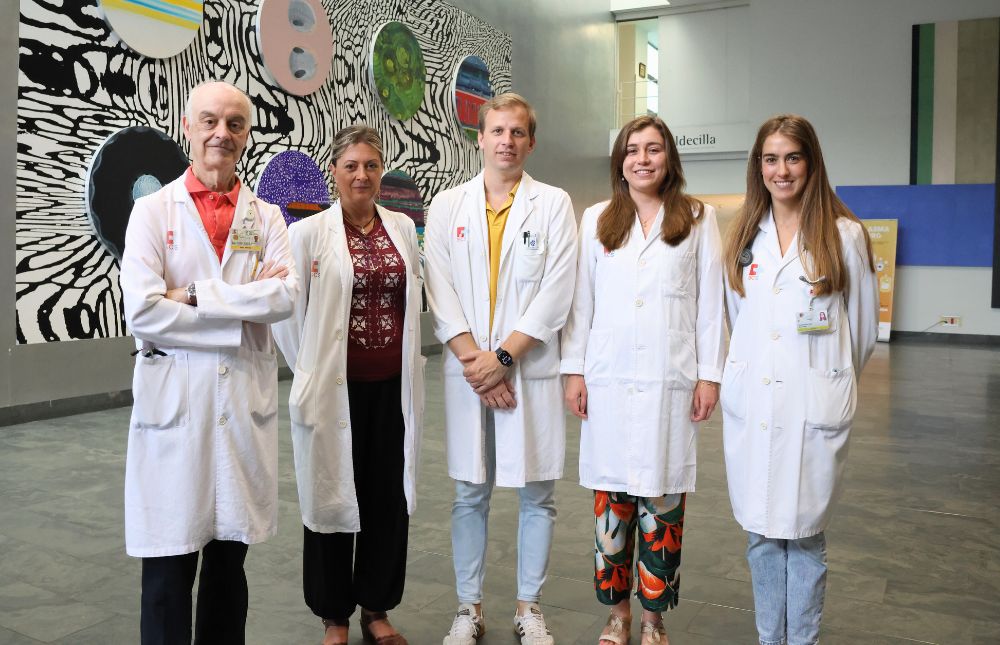Researchers in Cantabria develop a simple, cost-effective test to help diagnose patients with low alkaline phosphatase levels
Researchers from the Marqués de Valdecilla Research Institute (IDIVAL) and the Rare Diseases Unit at the Marqués de Valdecilla University Hospital (HUMV) have developed a new diagnostic method capable of identifying carriers of mutations in the ALPL gene, which encodes the enzyme alkaline phosphatase. These genetic alterations are linked to hypophosphatasia, a rare disease that can lead to bone weakness, fractures, and other health problems.
The method, published in the journal Osteoporosis International, involves measuring levels of PLP (pyridoxal phosphate)—an active form of vitamin B6—before and after administering a vitamin supplement over two days. Based on the results, this simple test can clearly distinguish individuals who carry ALPL mutations from those who do not.
“This is an easy-to-use, low-cost tool that can support the diagnosis of patients with low blood alkaline phosphatase levels, without the need for immediate genetic testing,” explains José Antonio Riancho, coordinator of the IDIVAL research group on Skeletal, Metabolic and Environmental Diseases (iESQUEMA) and one of the lead authors of the study.
Diagnosing hypophosphatasia is often challenging due to the wide variability of symptoms and the limited availability of accessible diagnostic methods. In this context, this new approach could represent a significant advance in the early detection of mild or asymptomatic cases that might otherwise go unnoticed.
The study involved collaboration with professionals from the HUMV Rare Diseases Unit, a national reference center for these conditions, and is part of the broader research line on rare metabolic disorders being developed in Cantabria.
You can read the full article here.
Photo: José Antonio Riancho, Ana Isabel Vega, Álvaro del Real, Sofía Álvarez, and Nuria Puente.





















